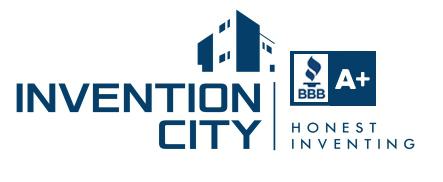Why Companies Sometimes Give Away Patents for Free

Sharing Patents to Fight Patent "Trolls"
In June 2014 Tesla announced it was giving away all of its patents for free. Elon Musk explained at the time:
"When I started out with my first company, Zip2, I thought patents were a good thing and worked hard to obtain them. And maybe they were good long ago, but too often these days they serve merely to stifle progress, entrench the positions of giant corporations and enrich those in the legal profession, rather than the actual inventors. After Zip2, when I realized that receiving a patent really just meant that you bought a lottery ticket to a lawsuit, I avoided them whenever possible."
Tesla is not the first or last company to do this. In a similar spirit of building a new business category, IBM allowed others to freely interface with its personal computer technologies. The result of IBM's open approach was an explosion of innovation that vastly accelerated the adoption of PCs. However, the open approach also set up so much competition that by 2006 IBM sold out to Lenovo and left the PC business entirely.
Volvo gave away its patent for three point seat belts in 1959 because the company felt it was more important to share technology that would save lives than profit from it. But giving away patents for pure social good is uncommon.
Renowned inventor Jerome Lemelson pioneered a model of profiting from patents in the early tech era by licensing patents he had no intention of using to companies making products that arguably violated his patents. Inventors who engage in that kind of activity today are known as "patent trolls" and businesses that acquire patents with the express purpose of trolling are known as Patent Assertion Entities.
It is estimated that a modern smartphone is covered by 250,000 active patents (you read that right - two hundred and fifty thousand). Even massive corporations can't be sure they're clear of all of those patents. Anyone innovating in the field of smartphones is almost surely violating someone's patent. That's what makes patent trolling so profitable and why more and more companies who make and sell high tech products are sharing patents to fight the trolls.
Sharing patents helps companies avoid expensive and uncertain patent litigation. This has been done in high tech for a while and is expanding into all categories of business. An example is the LOT Network, which is a group of companies that have banded together to inoculate themselves against patent litigation. The LOT Network includes companies like Microsoft, Facebook, Google, EBay, Disney, Netflix, GoPro, Tesla, Ford, Honda, Toyota, Caterpiller, Walgreens, Target, Fidelity, Wells Fargo and many, many more. None of this really affects independent inventors working outside of high tech, but if you are active in high tech, joining the LOT Network (it's open to everyone) could make sense for you. The downside seems to be that if you are a member and you sell your patents to a Patent Assertion Entity, those patents are automatically shared with LOT members, essentially making them valueless. If you want the option of selling out to a company who will use your patents for extortion rather than commercialization, then LOT Network is probably not a good fit.
And if you are not active in high tech, my advice is to just do your thing: file for a provisional patent, check out the market, proceed with a non-provisional if the market looks promising. Patents can have value and companies that actively make and sell products like to have patents because they can provide a long term competitive advantage.
share this article: facebook